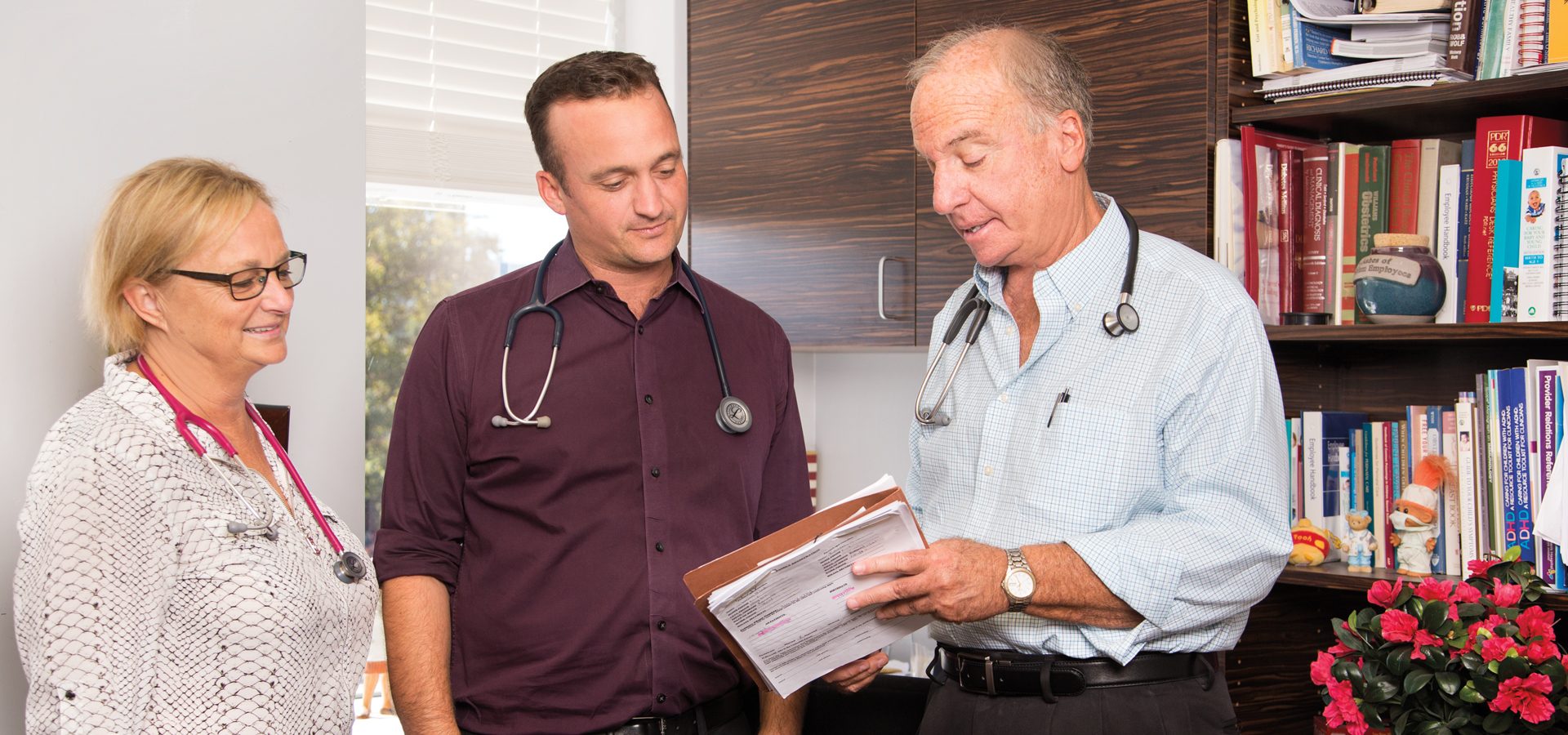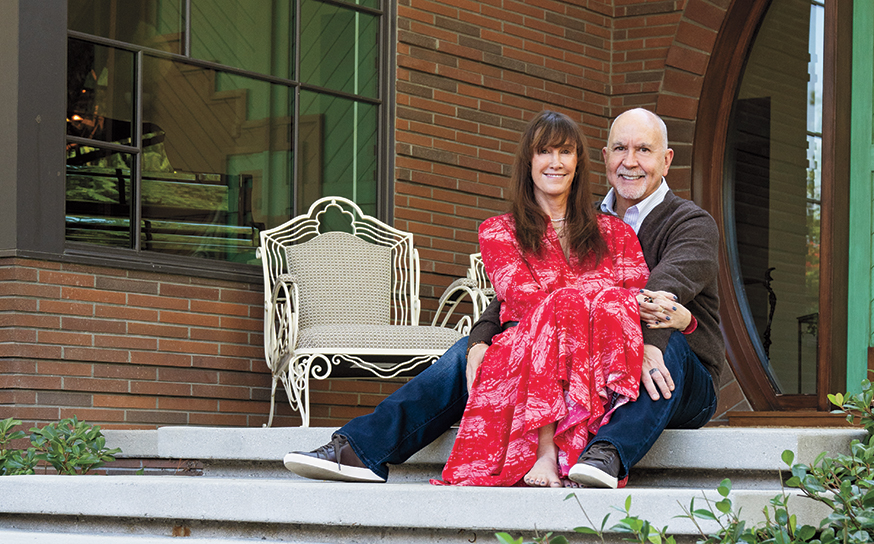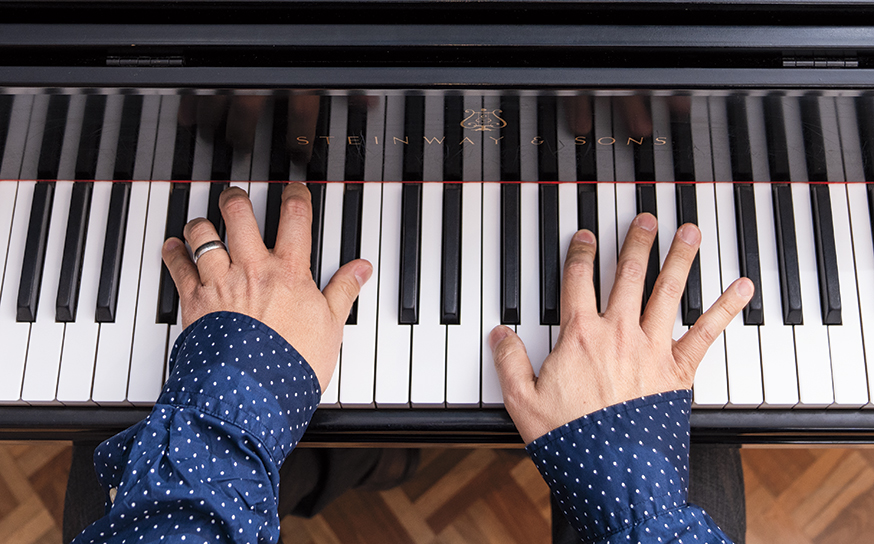Meeting the Bruckners makes one wonder if it’s something in the blood. The family of five—mom, dad and all three offspring—are pediatricians.
“We’re the Mannings of pediatrics,” jokes mom Laura Bruckner, MD, FAAP, referring to the multigenerational football dynasty. Laura herself is the daughter of a physician—her father was a gynecologist. Plus, her husband Irwin’s brother Mark is a pediatrician as well, practicing in Simi Valley. But unlike the Mannings, they’re all on the field at the same time.
The story of the Bruckner family’s California dynasty began in 1979, when Irwin and Laura left the East Coast to start their three-year residencies at Children’s Hospital of Los Angeles. The couple, both graduates of the University of Pennsylvania, got their medical degrees from New York University Medical School. They met in chemistry lab at Penn in 1972, fell in love and married in 1976.
Thirty-two years ago, they settled in a spacious Cape Cod-style home in Sherman Oaks and had three children: Daniel, Emily and Julia. After getting his combined bachelors and medical degrees at University of Southern California, Daniel (“Dr. Danny”) joined his parents at Balboa Pediatrics in Encino. Emily, who is a grad of the University of California, Los Angeles School of Medicine, practices at Westside Pediatrics, in Brentwood.
Following in her parents’ footsteps was not Emily’s initial plan. “I was deadset on being an ob-gyn, but when I did my rotation I didn’t fall in love with it. My mom knew all along I was going to be a pediatrician,” Emily says.
Julia’s medical education has followed much the same trajectory. She has one more year of graduate medical training in pediatrics at Kaiser Permanente in LA. But she entered med school thinking that she’d go into orthopedic surgery and only slowly came around to following the family tradition.

In the Hive
The family dynasty functions as a kind of medical hive mind: When you consult one Dr. Bruckner, you often benefit from the expertise of all five. “We text each other various medical questions all the time,” says Emily. “We talk medicine on a daily basis,” says Danny, who is engaged to be married next May. His sisters are still single, although all three say they are eager for children.
One of Irwin’s favorite anecdotes is about how his son solved a diagnostic mystery while still in med school. An infant patient, who was hospitalized, was terribly sick. “Every organ system was in bad shape, but the hospital couldn’t find the underlying cause,” Irwin recalls. During a drive to a USC football game he and Danny puzzled over the case. “Danny said, ‘Dad, I think I know what your patient has: It’s hemophagocytic lymphohistiocytosis.’”
Hemophagocytic lymphohistiocytosis, known as HLH, is incredibly rare—one case in every 100,000 children. It’s a severe immune system disorder that often proves fatal. “It’s usually diagnosed in autopsy,” Irwin notes grimly. But Danny was right, and his intuition not only led to lifesaving treatment for the very sick baby, but also saved his twin brother who had not yet shown symptoms.
The boys are now 9 years old. “The family just worships Danny,” says Irwin. Danny even wrote mnemonic lyrics about HLH to the tune of “Supercalifragilisticexpialidocious,” which the family is happy to sing for you.
In fact, long-term relationships with patients are one of the great joys of the profession, the Bruckners all agree. “If we go to a local restaurant, kids run up to us,” says Danny. “It almost makes you feel like a celebrity.”
“We’re the Mannings of pediatrics.”
The Flip Side
Irwin describes his profession as “the best job in the world,” but you have to wonder if there aren’t at least a few moments that make the family question their career choice. The patriarch concedes there are.
One unpleasant aspect of being a pediatrician is calling Child Protective Services when abuse is suspected, as is required by law. Although that’s rare, it does happen, explains Irwin. Another is getting caught up in acrimonious divorces and being compelled to testify against one parent or the other. And the administrative work and insurance negotiations that a large practice requires are a headache.
But by far the toughest aspect of the job is when a young patient dies. The death of a child is a scenario that brings tears to the eyes of more than a few of the Bruckners when they talk about it. Each of them has faced a moment of truth where, after an unexpected death, they felt they couldn’t go on. That’s where the support and empathy of family really makes a difference: When mom or dad says they’ve been there, the siblings know they actually have.
Irwin recalls a young patient with a seizure disorder who Dr. Danny had examined post-seizure and cleared. But, says Irwin, “It turned out the boy had a bleed on the brain and they had to do neurosurgery on him and keep him in a [medically induced] coma. Danny said to me, ‘Dad, if he dies, I don’t think I can continue in medicine.’” The boy recovered and is fine now.
Emily remembers a tragic case of her own: “There was a kid being treated for leukemia with liver failure. I told her to just rest and I’d take of everything. She fell asleep and never woke up. I was crying for days.”
“It takes an emotional toll,” agrees Julia, who currently sees very ill children in her residency. “My family is helping me with that. It’s hard to go through.” Julia says she loved her rotation through pediatric emergency medicine but changed her mind about making that her specialty when a 9-year-old boy was brought in with a bad reaction to chemotherapy. “He died in front of me. There wasn’t anything we could have done, but I was sobbing.” But even when treating terribly sick children, the Bruckners see a bright spot, which is that kids are much more resilient than adults and when faced with a diagnosis like leukemia, stand a good chance of beating it. “Kids fight and win,” says Julia.
“They get better.”

Bedside Manner
In spite of the sometimes sad stories, Emily believes, “It’s generally a happy field of medicine.” None of the Bruckners wear white lab coats in the office and all of them have tricks to keep kids distracted during exams. “I look for puppies in their ears,” says Emily, woofing to demonstrate. “I always ask if they know where their heart is,” says Danny. “One kid told me he left it at home.”
Even in today’s troubled world, kids are still kids: spontaneous, funny, curious, engaging. If anything has altered in the last three decades, it’s the parents, says Laura. “The internet has really changed parenting. People are coming in with ideas about how they’re supposed to be a perfect parent. I feel sorry for parents now because they’re so pressured.” Adds Emily, “The mommy blogs make them think there’s only one right way. Really, there are so many right ways.”
Join the Valley Community









